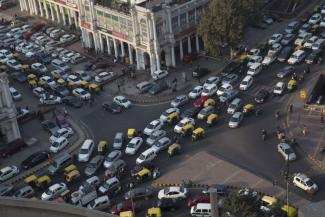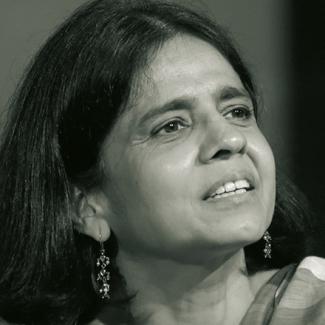Urban environment
No car is clean

Delhi suffers terrible air pollution. According to the World Health Organization (WHO), all other major cities on earth have better air. With figures for particulate matter (PM) often exceeding the WHO’s safety limit 10 times, Delhi’s air is more than twice as bad as Beijing’s. The lungs of half of Delhi’s more than 4 million children are damaged. Data are bad for all Indian cities, and in some smaller towns, things are even worse than in Delhi.
Something must happen. The odd-even scheme was implemented in January for the first time. Lawyers immediately filed court cases against it. They argued that the scheme led to enormous inconvenience and worse, daily pollution data showed no impact on air quality. Cars, they said, were not responsible for pollution, and some added that diesel cars are clean. Diesel motors, however, are only clean in the sense of needing comparatively little fuel – but they emit far more PM than gasoline motors.
Let’s understand all the facts. The two major causes of air pollution in Delhi are road dust and vehicles. The burning of coal in power stations, industrial units and homes matters too, but not as much. Action must be taken against all sources of pollution of course, but traffic is of prime concern.
Controlling road dust will demand multipronged action to pave, green and water the sidewalks. But road dust generation is also a function of vehicle traffic. The more we drive, the more dust is raised and recirculated. Worse, the coating of vehicle fumes makes the dust toxic.
Of all vehicles, are cars to blame? Yes, and let me explain why. There are three major segments—trucks, two-wheelers and cars. In Delhi, buses and three-wheelers have already switched to comparatively clean compressed natural gas.
Trucks are bad news for pollution. They are old, mostly overloaded and rely on outdated technology. My organisation, the Centre for Science and Environment, has therefore proposed a tax on all trucks that go into or through Delhi in a case before the Supreme Court. The judges approved our idea in December, and thanks to the new tax, we now have 20 % fewer trucks in Delhi. The Court also ruled that especially large diesel cars must no longer be sold in Delhi. Moreover, we asked for cleaner fuel and technology to be introduced fast, and the central government promised to introduce the EU’s current emission standards (Euro VI). This is another major step forward.
Private vehicles matter. Because of sheer numbers, two-wheelers contribute the bulk of vehicle emissions in Delhi. Only 10 to 15 % come from car tailpipes, but the contribution of cars rises when you consider road congestion. Experts have found out that, in certain congested areas, cars cause 60 to 90 % of the most toxic PM pollution.
Since cars matter, the odd-even scheme has made a difference. Taking half the cars off the road meant that the pollution spike was moderated in January. This is a big achievement. However, due to bad weather conditions – still air and high moisture – pollution levels increased in the first week of implementation nonetheless. Without the scheme, it would have increased even more.
The long-term solution is to free Delhi and its vicinity of two-wheelers and cars permanently. We must invest massively in public transport. Today, only 10 to 15 % of the people in Delhi and neighbouring areas drive cars. There is no way we can plan for the rest to do so too. Odd-even should be our way of life. Let’s share cars; take a bus or metro; cycle or walk.
P.S.: The Volkswagen scandal should have taught everyone that diesel is not as clean as car makers want us to believe. The sad truth, moreover, is that even the powerful EU is currently relaxing its norms, prioritising industry needs over the health of people in cities like London, Milan or Stuttgart.
Sunita Narain heads the non-governmental Centre for Science and Environment in Delhi and edits its fortnightly magazine Down to Earth.
cse@equitywatch.org








